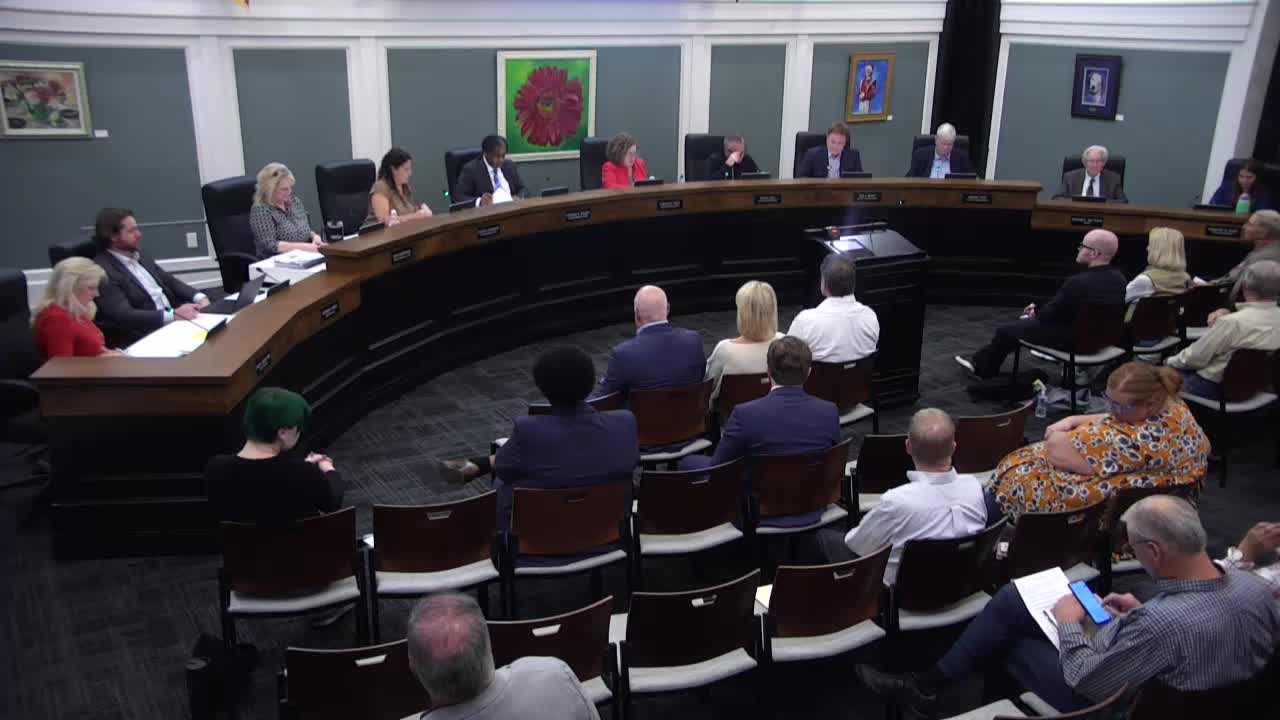Council narrowly approves ‘Grove City Cares’ pilot to reimburse health-insurance premiums for residents and workers
October 20, 2025 | Grove City, Franklin County, Ohio
This article was created by AI summarizing key points discussed. AI makes mistakes, so for full details and context, please refer to the video of the full meeting. Please report any errors so we can fix them. Report an error »

Grove City Council voted to convert an earlier grant concept into a pilot reimbursement program — branded Grove City Cares — to help people who live or work in Grove City to pay premiums on plans purchased through the federal marketplace (healthcare.gov). The ordinance amendment passed 4–3.
Councilmember Ted Berry and a volunteer task force presented the pilot as a targeted, limited program designed to assist people whose employer does not provide insurance and who use healthcare.gov for coverage. The task force recommended a reimbursement rather than an up-front grant for documentation and auditability. Staff and task force members noted the program is intended as a pilot; the ordinance establishes the reimbursement framework and council will consider funding the pilot during the budget process.
Task-force members said they tested likely marketplace scenarios and selected reimbursement amounts intended to have practical impact for middle-ground households. The task force used example plan premiums and determined that reimbursement awards in the several-hundred-dollar range could cover multiple months of an individual’s marketplace premiums under some plans. The group recommended an initial pilot budget figure of $75,000 to be proposed during the budget cycle; council voted to authorize the revised program structure but did not appropriate funds during the meeting.
Councilmembers and staff discussed administrative and legal questions, including what documents the city will accept to establish eligibility (staff said case-by-case documentation, such as unemployment notices or employer letters, would be used), how the city will avoid creating taxable income for recipients, how the city will handle privacy of federal tax records, and how to advertise the program. Staff indicated existing personnel can administer pilot reimbursements and that the task force will coordinate initial outreach; councilmembers suggested a targeted enrollment/assistance event during the open-enrollment period to help residents navigate healthcare.gov.
The ordinance amendment passed on second reading with the roll call recorded as 4 in favor and 3 opposed. Councilmembers who voted in favor said they viewed the pilot as a limited, experimental step to reduce a barrier to coverage; councilmembers opposed expressed concern about administrative complexity, eligibility documentation and potential unintended effects on other assistance programs. Councilmembers directed staff to prepare a clear narrative and forms explaining eligibility and the reimbursement process ahead of implementation and to present the requested pilot funding during the next budget cycle.
Councilmember Ted Berry and a volunteer task force presented the pilot as a targeted, limited program designed to assist people whose employer does not provide insurance and who use healthcare.gov for coverage. The task force recommended a reimbursement rather than an up-front grant for documentation and auditability. Staff and task force members noted the program is intended as a pilot; the ordinance establishes the reimbursement framework and council will consider funding the pilot during the budget process.
Task-force members said they tested likely marketplace scenarios and selected reimbursement amounts intended to have practical impact for middle-ground households. The task force used example plan premiums and determined that reimbursement awards in the several-hundred-dollar range could cover multiple months of an individual’s marketplace premiums under some plans. The group recommended an initial pilot budget figure of $75,000 to be proposed during the budget cycle; council voted to authorize the revised program structure but did not appropriate funds during the meeting.
Councilmembers and staff discussed administrative and legal questions, including what documents the city will accept to establish eligibility (staff said case-by-case documentation, such as unemployment notices or employer letters, would be used), how the city will avoid creating taxable income for recipients, how the city will handle privacy of federal tax records, and how to advertise the program. Staff indicated existing personnel can administer pilot reimbursements and that the task force will coordinate initial outreach; councilmembers suggested a targeted enrollment/assistance event during the open-enrollment period to help residents navigate healthcare.gov.
The ordinance amendment passed on second reading with the roll call recorded as 4 in favor and 3 opposed. Councilmembers who voted in favor said they viewed the pilot as a limited, experimental step to reduce a barrier to coverage; councilmembers opposed expressed concern about administrative complexity, eligibility documentation and potential unintended effects on other assistance programs. Councilmembers directed staff to prepare a clear narrative and forms explaining eligibility and the reimbursement process ahead of implementation and to present the requested pilot funding during the next budget cycle.
View full meeting
This article is based on a recent meeting—watch the full video and explore the complete transcript for deeper insights into the discussion.
View full meeting
